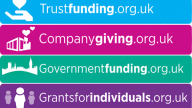Simple but Powerful: Your Top Four Writing Tips
Ahead of his 'Writing for the Voluntary Sector' course, Paul Brollo gives his top tips on what you can do to develop your writing skills in the charity sector.
Everything you write at work says something about who you are and how much you care about your message. Other people can tell how much you believe in your mission from the amount of effort you put into your writing. They can read between the lines – and you should ensure that their overall impression of you works to your advantage. Your writing matters as much as your conviction and these top four writing tips can help you make your writing matter even more.
Don’t think of your writing as a task
Think of your writing as a process. Your writing is a series of steps you have to take in the right order so that you can reach your final objective: a document that communicates your message clearly and simply, no matter how long or short that document might be.
Don’t try to do everything in one go
The steps in your writing process are complex and can involve several distinct tasks. If you try to do them all at once, you’re going to set yourself up to fail. Break your writing process down into smaller, more manageable steps; and then take breaks whenever necessary, including over-lunch, overnight or over your weekend.
Don’t wait until you’re finished to get feedback
Ask other people – your manager, your colleagues, or ideally, your end-users – what they think of your writing at every step along your way. Regular feedback will keep you on track to reach your objective, regardless of the length – or complexity – of your document.
Don’t learn how to write through trial and error
Writing is a complex skill and everyone who writes well has learnt to do so. Don’t leave your writing-skills development to chance. Get some training on your core process and techniques, and then practice them back at your desk. No matter how much your technology changes, you will always have to write to get your job done. The sooner you master this essential communication skill, the sooner you can get on with changing your world. Remember that writing can empower you and put you in a position to bring about the kind of social change you want to see.
Article and Tips © Paul Brollo – April 2018 I Used at DSC with Permission

